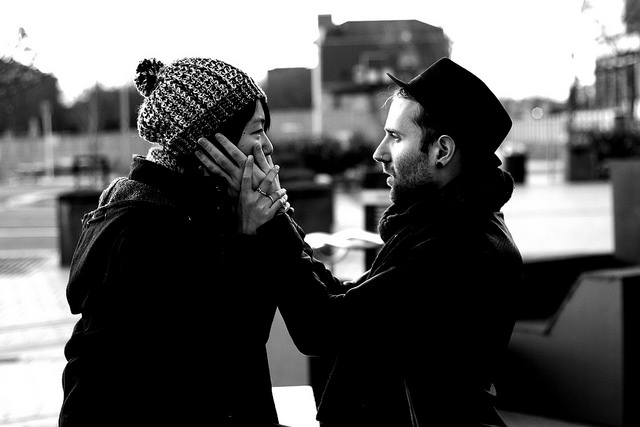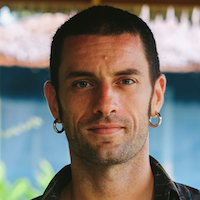If you ever thought that it was somebody else’s fault if you felt sad, angry or jealous, you were most likely wrong: it was nobody’s fault, and it was your responsibility.
You are the only one responsible for all of your emotional states, the pleasant and the unpleasant. Sounds crazy? This simple idea, however, can revolutionize your relationships.
Imagine three kids taking a ride on a roller coaster. As they get off, one of them is excited, the other one frightened, and the third one utterly bored. Yet, they went through exactly the same experience! Can you see how the same event, like the roller coaster ride, can trigger completely different emotional responses in different people?
This same principle remains valid in the context of relationships: no one ever “makes us” sad, angry, or jealous. Other people’s behavior may be the “trigger,” but our emotional response depends mainly on our inner state. If we could change our inner state, then, we could be happy instead of sad, peaceful instead of angry, calm rather than jealous.
But before we can do that, we need to take full responsibility for our emotions, and stop considering others as the cause of our negative emotional states.
Responsibility is not guilt.
At first glance, it might seem that taking responsibility for our negative emotions is a recipe for crushing our self esteem. Our fragile ego won’t like it a single bit, if we stop blaming others and make ourselves responsible for our emotions! But admitting that as conscious, adult human beings we are responsible for our own emotions does not mean that it is our “fault” if we feel sad or angry: there is an enormous difference between fault and responsibility.
“Fault” implies that we are flawed and that we need to be fixed in order to conform to some external standard of goodness. “Responsibility,” on the contrary, means that we are fully conscious, powerful and self-determined adults, who take merit for their own successes and happiness, and take responsibility for their own failures and shortcomings. Blame is never justified, unless we picture ourselves as puppets in the hands of others.
Responsibility is power.
By placing the cause of our negative emotions outside ourselves, we give up all possibility for positive change. If your partner is the one responsible for your sadness, then the only way to improve the situation is by changing his or her behavior by force, plea, or manipulation. Conversely, when we accept that every emotion arises inside us because we allow it, we open the door to the possibility of feeling better thanks to ourselves.
Because responsibility equals power, by taking responsibility for our emotional states we reclaim the power to change them! Modifying our patterns of behavior, then, is a matter of consciously choosing to evolve and implement powerful, positive change in our lives.
Offering support versus feeling guilty.
There is a logical but perhaps surprising consequence of taking responsibility of our own emotions: we can expect everyone else to do the same. In other words, we don’t need to feel responsible for the negative feelings of others.
Naturally, this does not mean that we shouldn’t be supportive and caring with our partners when they are hurt. But we can let go of the idea that we need to “fix” our lovers’ sadness—only they can change their own emotional reactions, even though we can help them by supporting them and listening to them.
In fact, only by being responsible for our own emotions can we be truly supportive, or can we ask for support when we need it. Feeling guilty about somebody else’s distress does not make us better friends or lovers; on the contrary, it puts us in the difficult situation of trying to help our partner, while we actually want to either punish ourselves or make up for what we “did wrong.”
By accepting that we are the sole creators of our own negative emotions, and that the same applies to everyone else, we can allow ourselves to ask for help or offer support without blame or resentment. After acknowledging that we are responsible for our anger or sadness, we can ask our partners for their collaboration in not triggering those feelings gratuitously.
Breaking the circle of blame.
A world in which everyone took responsibility for his or her own emotional well-being would be more open to love and less prone to rancor.
So much of our energy is wasted into blaming others for our own unhappiness–with scarce results, since most people don’t react well to blame. On the other hand, very few people refuse to offer their contribution to our happiness, if they don’t feel forced, manipulated or emotionally blackmailed to do so. Adopting emotional responsibility turns out to be much more effective than blaming others, as it stimulates friends and lovers to help and support us for the sheer pleasure of it, rather than out of guilt.
That said, sometimes we might come to the realization that our current friends or lovers simply cannot provide the kind of support or affection we need. In that case, there is one beautiful thing we can do: thank them for what they’ve done so far and look for someone more in harmony with our current needs—instead of blaming them for not being the way we would like them to be.
In short, choosing emotional responsibility is an act of power, integrity, and a bold step into emotional adulthood. It is a fundamental shift of perspective that sets the basis for any harmonious, solid and rewarding form of relationship.
Emotional responsibility makes us the authors of our own destiny, and allows us to freely connect to other equally powerful, wonderful and autonomous human beings.
Relephant:
5 Signs You’re in the Wrong Relationship.
Author: Raffaello Manacorda
Editor: Catherine Monkman
Photo: Nadia Morgan/Flickr

 Share on bsky
Share on bsky





Read 5 comments and reply